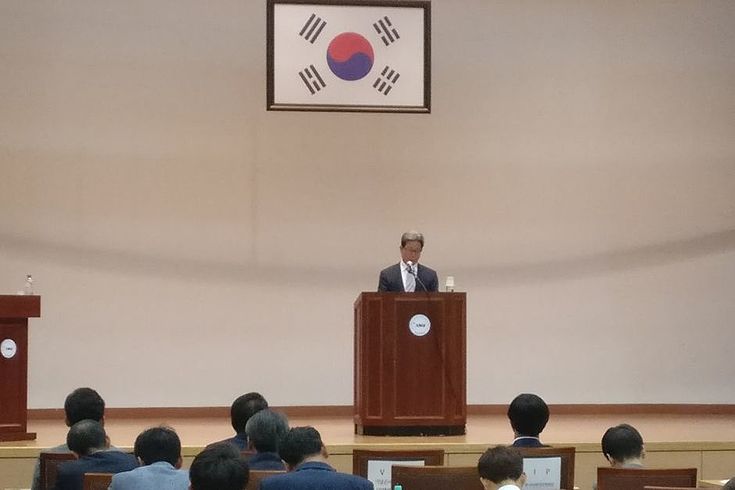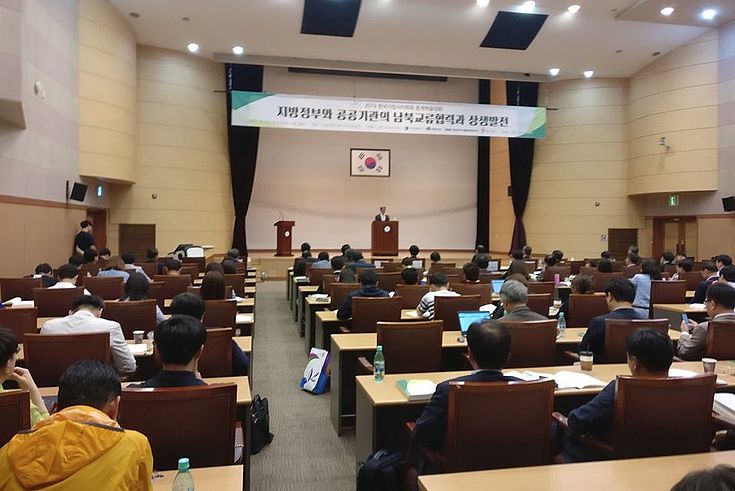Conference
The Role of Local Governments

Keynote Speech given by Prof. Dr. Lee Dalgon
Korea has a sometimes bewildering number of academic associations and institutes, but fortunately in recent years, in fields like International studies, these sometimes larger and sometimes smaller associations and institutes join their efforts to organize excellent conferences. In the case of the 2019 Local Administration Science conference the lead was taken by the Korean Association for Local Government Studies (KALGS), which was joined by the Korean Local Administration Research Institute, the Research Institute for Gangwon, the Institute for a Unified Gangwon of Kangwon National University and the Korean Tourism Corp. For two days, plenary sessions and ten concurrent workshop sessions discussed a variety of aspects of local administration and inter-Korean relations. The keynote speech was held by Prof. Dr. Lee Dalgon, former Minister of Public Administration and Security and long-term professor and dean at the Graduate School of Public Administration of Seoul National University, and also a close partner of Hanns-Seidel-Foundation Korea.

View over the conference
In a session organized by KALGS and moderated by Prof. Moon Byung-Gi of the Korean Broadcasting University, Dr. Bernhard Seliger of Hanns-Seidel-Foundation Korea looked back at the role of local administrations during German division and the unification process and aftermath. From the very beginning of German division, in particular the insecure status of Berlin, which was divided in West and East like the rest of the country, but became an island once the German Democratic Republic was set up, make a certain coordination also on the local level necessary. The Ostpolitik of the 1970s brought new possibilities in particular for citizens living in the West German border zone to travel relatively easy to the East (the so-called “small border traffic”). Later in the 1980s, around twenty town partnerships between East and West emerged. While they were seen by the East as a sign of normal, mature inter-state relations (East Germany by that time vehemently rejected any mentioning of unification), they also increased human contacts on the local level and helped fostering the band between East and West.. During the unification process, West German states as well as cities and counties began a large-scale town-twinning program with the East, which started with some emergency aid in the chaotic days after the fall of the Berlin wall, and later brought massive training and personnel exchanges. Many of these partnerships, which formally ended in 1994, are still alive as city – sisterships today, showing the positive effect also in bringing people together. Also, fiscal solidarity between West German states and local administrations and the newly East German emerging states were of high importance and fostered the idea of German unity.
After the presentation of Dr. Seliger, Dr. Park Kwang-gyu of the Korean Governors’ Association, Prof. Choi Jin-Shik of Kookmin University and Prof. Kang Yong-Cheol of Korea University discussed the implications of the German case for Korean unification. While in Germany the break-down of the socialist system brought a vacuum regarding values and the clash of the West and East German system brought many conflicts, the society with a rich level of institutional trust could to some extent mitigate these problems. In Korea, where institutional trust is less developed, this will become a big challenge to overcome, once North and South try in earnest to unify the country. One important lesson, Dr. Seliger concluded, was it to focus more on a peaceful modus vivendi between North and South first, instead of talking about unification alone.
